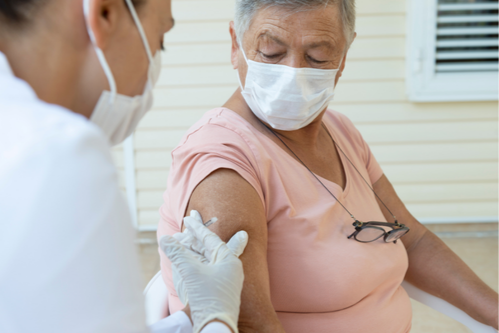
Improved living conditions and the discovery of vaccines and antibiotics led to a demographic explosion, which became more pronounced in the second half of the 20th century. Vaccines made it possible to prevent most infectious diseases; antibiotics began to treat and cure them.
Infectious diseases, which used to be the main cause of death, have been replaced by cardio and cerebrovascular diseases, chronic respiratory diseases and cancer. Today, there are only two types of infection in the top ten causes of death: pneumonia and diarrheal diseases.
In the respiratory sphere, three types of infection dominate. These are influenza, COVID-19 (SARS-CoV-2 is here to stay) and pneumonia. The first two are viral infections; the last can be caused by a vast number of bacteria, most commonly pneumococcus.
Last year, another viral actor emerged, causing peaks in community infections every four to six years: the respiratory syncytial virus (RSV), which causes very serious infections in newborns and the elderly.
All these viral infections peak in cold weather, so the best way to prevent them is to act early, and fall is the right time.
The flu and COVID-19 vaccines are administered free of charge in pharmacies to people aged between 60 and 84, while health centers are responsible for vaccinating other risk groups, such as people over 85.
As these viruses are highly contagious, the groups to be vaccinated go far beyond these, and should include health professionals, all those who care for frail people and people who frequent places where there is a high concentration of people, such as residences for the elderly, prisons, barracks and hospitals (users, staff and visitors).
The constant mutation characteristic of the flu and COVID-19 viruses means that vaccines have to be updated every year. This year, a vaccine four times more potent is available for people over 84.
As for the anti-pneumococcal vaccine, also known as the pneumonia vaccine (it is part of the National Vaccination Program (PNV), with three inoculations administered to children in the first year of life), it should not be forgotten by people over 65, people living with chronic illnesses and people with immune deficits. These people should have their vaccination schedule updated.
Portugal is a leader in the field of vaccination. The PNV was implemented on October 4, 1965 with the aim of reducing infant mortality - which at the time was very high. It began with just five vaccines, in a massive vaccination campaign against polio (now extinct in Portugal). The initiative was so successful that today around 95% of Portuguese children are immunized against 15 of the main infectious diseases.
Today, the PNV, which began only for children, has been extended to other population groups, including pregnant women, the elderly, people with chronic illnesses, people living with fragile immune systems, and travelers.
It is therefore a lifelong vaccination program.
As far as age is concerned, if you are over 60, in addition to the three vaccines mentioned above, there are two others that are suitable for you: the vaccine that provides protection against the varicella-zoster virus, responsible for the area, and the vaccine against RSV infections.
Don't slack off or be late. If you haven't had your vaccinations up to date, talk to your doctor.
copyright © by the National Association of Pharmacies
________
WITH SHEE'S HELP
Find a multidisciplinary team of health professionals, always with friendly advice, to provide you with safe, close and personalized care.
Register now 👉 here.
Make an appointment with your pharmacist 👉 here.
Discover all the products, at the best prices, all year round, in the online store 🛒.
Life is easier when you're healthy.